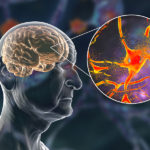By David Blyweiss, M.D., Advanced Natural Wellness
September 30, 2019
Losing your memory and ability to think is one of the scariest things of all.
So, if you’re in your 50s, 60s, or 70s, you may start to worry every time a memory blip affects your day.
Where did you leave your keys? What was the name of your new neighbor again? How did you forget to go to that dinner you confirmed ?
Oftentimes, these little blips are nothing to worry about. But some of you are concerned Alzheimer’s disease is in your future.
Rather than suffering from constant worry, you may want to try this simple at-home test to see if a doctor’s visit is a good idea.
So what is this fancy brain test I’m recommending?
Simple…a smell test!
(I know it doesn’t sound very scientific.)
MD Exposes the Hidden Danger to Your Eyes

When your eyesight starts to fail, it's a real problem. Suddenly you can't go to the grocery store... you can't get to the doctor if you have an emergency... you can't meet your friends for dinner…
Your "regular" doctor doesn't have time to keep up with the latest research. And the same goes for eye doctors. They go to school to learn how to fit you for glasses and contacts, but have no way of preventing the damage and loss of eyesight that threatens your freedom and independence.
Let me show you something that explains a LOT about how your eyes work.
In my FREE Special Report, I'll show you a HUGE, untapped resource for your eyes that safely and naturally restores clear, effortless eyesight.
Click here to get started...
But if you have a hard time smelling certain odors, it can indicate a high risk of Alzheimer’s and other potential neurological disorders like Parkinson’s Disease. This test works so well because the olfactory nerve (responsible for the sense of smell) is the only cranial nerve with direct contact to the outside world and connects directly to the olfactory cortex via the olfactory bulb in the brain. When the self repair system of the sense of smell begins to fail this can be a sign that your brain is losing it’s own repair system.
So a problem with your sniffer now, could reveal deeper problems down the road 5 or so years later.
Sometimes I will have my patients over 40 try this test. If they have a problem smelling certain scents, they may have a reduced volume in their hippocampus. This part of the brain helps turn short-term memories into ones that are long-term.
People who have trouble smelling could also have a higher burden of amyloid plaque. Maybe even a thinner entorhinal cortex – which plays a role when it comes to forming and organizing your memories.
Even worse, a problem smelling common odors is associated with a much greater likelihood of developing cognitive problems over the next five years.
Here’s How You Do The Test…
To do the at-home Alzheimer’s smell test, start with a basic blindfold. Once you can’t see, have another person place strongly scented foods directly under your nose.
I like to try vanilla, lemon, peppermint, coffee and cinnamon….things most people have in the kitchen.
Simply cover one nostril and take a slow deep breath in. If you don’t smell anything right away, try doing a few quick sniffs. (Your nose uses different nerves when doing a slow smell versus a quick snort.) Then, try this test again with the other nostril.
If you fail to identify the majority of odors, don’t panic or jump to conclusions. It could be related to other medical conditions, like obesity, diabetes, nutritional deficiencies or medications you’re taking.
However, it may also be a good idea to pay a visit to your neurologist. This test works well for Alzheimer’s and Parkinson’s diseases — and could reveal a problem five, six, or even seven years before you start noticing other symptoms.
The World's Quickest Solution for Ending Prostate and Urinary Misery
This has recently been revealed to be one of the only real breakthroughs in prostate health.
The seeds of a strange fruit (sometimes called "Chinese Apples") hold powerful phytonutrients that are a revolution in prostate health.
In fact, UCLA and Veterans Administration research have now proved this to be true.
Not only that, but it may be the worlds quickest solution for ending prostate misery.
Simply stated, these phytonutrients represent a huge step beyond beta sitosterol, saw palmetto, and other phytosterols alone.
Simply click HERE if you want to have fast prostate relief...restful, uninterrupted sleep...no more constant "urges to go"...enhanced virility...and optimal prostate support for life.
Your neurologist can administer a more detailed set of tests. The one most often used is a “scratch and sniff” test called the University of Pennsylvania Smell Identification Test, or UPSIT.
What If You Are at High Risk?
Well, there isn’t a cure yet for Alzheimer’s or Parkinson’s…
So the best thing you can do is take matters into your own hands. Here are three things you can start doing immediately to slash your risk:
Get plenty of sleep. During sleep your brain flips on a “drainage” system (the glymphatic system) that opens up between the cells of your brain. When this system is flipped on, cerebrospinal fluid rushes between your brain cells to pick up and flush toxic oxidative stress by products made during the day, like the misfolded protein beta amyloid.
This is like opening a waste valve to get rid of the toxic gunk inside your head — but it only happens when you’re asleep. So plenty of shut-eye will help prevent Alzheimer’s related amyloid plaques from building up in your brain tissue.
Get 30 to 60 minutes of exercise every day. Ah, yes. The dreaded exercise. I usually tell my patients to just pick a direction and walk in a straight line for at least 20 minutes. It’s up to them how they get home again.
This regular exercise increases brain derived neurotrophic factor (BDNF) and can cut your risk of Alzheimer’s by almost 40%. Even if you start exercising later in life, it can reduce the odds of mental decline by about a third.
That’s because exercise encourages the growth of new neurons. It also decreases the buildup of amyloid plaques. So get in the habit of walking or riding your bike 30 minutes each day with a few bursts of intensity.
Optimize your diet by ditching the American way of eating. It’s no coincidence that people shorten the Standard American Diet to “SAD.” So cut out the high-glycemic carbs, packaged foods, saturated fats and whole grains.
Instead, I recommend adopting a Mediterranean-style diet. This means getting plenty of antioxidant-rich fruits and vegetables, seafood, nuts and spices.
And don’t forget the extra virgin olive oil. It contains a compound called oleocanthal. This incredible antioxidant boosts production of proteins and enzymes that are critical in removing beta amyloid – a key factor in Alzheimer’s – from the brain. Oh and the new neighbors’ name is Bob.
SOURCES:
Growdon ME, et al. Odor identification and Alzheimer disease biomarkers in clinically normal elderly. Neurology. 2015 May 26;84(21):2153-60.
Schubert CR, et al. Olfaction and the 5-year incidence of cognitive impairment in an epidemiological study of older adults. J Am Geriatr Soc. 2008 Aug;56(8):1517-21.
Bohnen NI, et al. Olfactory dysfunction, central cholinergic integrity and cognitive impairment in Parkinson’s disease. Brain. 2010 Jun;133(Pt 6):1747-54.
Xie L, et al. Sleep drives metabolite clearance from the adult brain. Science. 2013 Oct 18;342(6156):373-7.
Geda YE, et al. Physical exercise, aging, and mild cognitive impairment: a population-based study. Arch Neurol. 2010 Jan;67(1):80-6. 2013
Martinez-Lapiscina, et al. Mediterranean diet improves cognition: the PREDIMED-NAVARRA randomised trial. Journal of Neurology, Neurosurgery & Psychiatry, 2013.
Incidence of Parkinson’s disease in a large patient cohort with idiopathic smell and taste loss. Haehner A, Masala C, Walter S, Reichmann H, Hummel T.J Neurol. 2019 Feb;266(2):339-345.
Olfactory Testing in Frontotemporal Dementia: A Literature Review. Tonacci A, Billeci L. Am J Alzheimers Dis Other Demen. 2018 Sep;33(6):342-352. doi: 10.1177/1533317518775037. Epub 2018 May 9. Review.
Heterogeneity of odorant identification impairment in patients with Alzheimer’s Disease. Umeda-Kameyama Y, Ishii S, Kameyama M, Kondo K, Ochi A, Yamasoba T, Ogawa S, Akishita M. Sci Rep. 2017 Jul 6;7(1):4798.
Olfactory testing in consecutive patients referred with suspected dementia. Christensen IT, Larsson EM, Holm IE, Nielsen OBF, Andersen S. BMC Geriatr. 2017 Jun 20;17(1):129.






